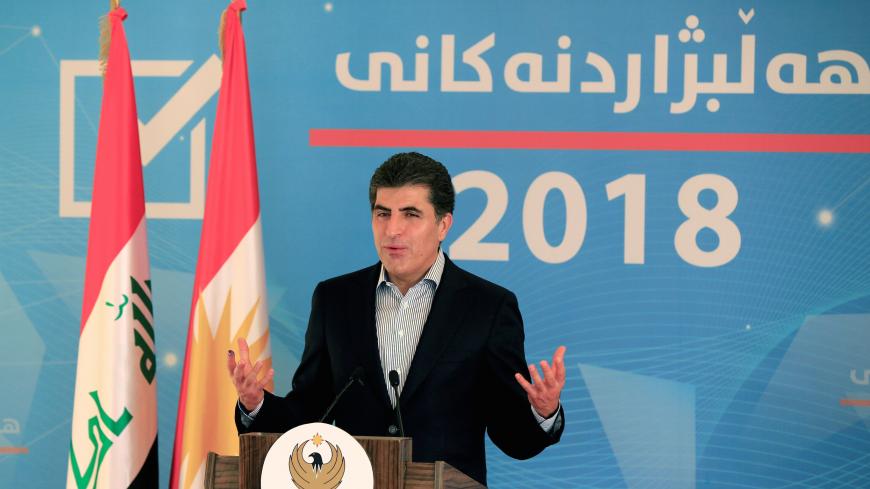Lawmakers in the Iraqi Kurdistan Parliament formally reactivated the office of the presidency today in a session presided over by the body’s first female speaker, Vala Farid. The position was frozen when Massoud Barzani stepped aside after the 2017 independence referendum. The plebiscite had been fiercely opposed by Baghdad, as well as by Iran, Turkey and the United States, setting the stage for Iraqi military action and the loss of Kurdish control of Kirkuk and other contested territories. Barzani’s nephew and son-in-law, Nechirvan Barzani, has since held the fort as prime minister.
Why it matters: On a practical level, the move is critical for the long-delayed formation of a government in the wake of parliamentary elections held in September. The parliament agreed today that it — not the public — will elect the next president.



